Society for Community Health Awareness Research and Action
Homage
Gratitude is not only the memory but the homage of the heart. SOCHARA pays homage to the memory of the many people who inspired us over the years and encouraged us with their involvement, wisdom, solidarity and support during their lives.
Fr. Claude D'Souza
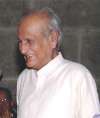
FR. CLAUDE D’SOUZA SJ (1931-2018)
The late Fr. Claude D’Souza SJ was one of the founding mentors of CHC / SOCHARA team and played an active role as chief trustee of CHC when it was a project unit of CNFCE (1984 till 1990) and then as a founding member of SOCHARA – the registered trust from 1991. Over the years, he was also an inspiration and mentor to many team members and fellows beyond the original SOCHARA team. We in SOCHARA were fortunate to be able to organize a gathering of many activists and fellow travelers in development, health and related work at the 80th birthday of Fr. Claude a few years back, where we reflected on the challenges of social activism and also recalled the role that Fr. Claude had played in all our lives. Till the end, Fr. Claude was always available to visit SOCHARA and listen to journeys and experiences of team members and fellows, making observations and raising questions to keep us focused on reaching and unreached. While we will all miss his physical presence amidst us we will continue to keep his smile and supportive presence and solidarity in all that we do.
- Reflections by SOCHARA team and members
- Remembering Fr. Claude D’souza – SJBHS auditorium, 11th August, 2018
- A most extraordinary man
Dr. C. M. Francis
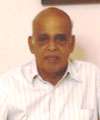
Dr. C. M. Francis was former Dean of medical colleges in Kerala and of St. Johns Medical College, Bangalore, and then Coordinator of the CMC-Vellore Continuing Education Department. When the founding members of SOCHARA, Dr's. Ravi and Thelma decided to spend a year of travel and reflection, to meet people in the emerging community health and alternative development network in the country and to explore roles and options beyond a medical college Dr. Francis understood and supported them in this quest. That year was 1982. Today, several years on, SOCHARA stands strong because of the assurance received to go against the waves of conformity. Dr. Francis was the founding President of SOCHARA. He was also a senior consultant with CHC from 1994. His contributions to health management, ethics, policy engagement, and medical education encouraged CHC to look at health in a multi disciplinary way. He was a key member of the Karnataka Task Force on Health and Family Welfare when CHC was like the de-facto secretariat of that process. He helped CHC balance professional scholarship with humaneness and a strong value orientation. During the phase of his linkage with the society he also wrote the books on Medical Ethics and Hospital Administration.
1. Homage by Ravi D'Souza in IJME_Vol 6, No3 (2009)
2. Homage by Ravi Narayan & A. Mohan in Johnite.net Jan'2009
Prof. George Joseph
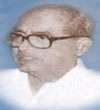
Prof. George Joseph was Professor and Head of Department of Community Medicine at the All India Institute of Medical Sciences, New Delhi. When he retired he became one of the “three wise men” who advised and supported the co-initiators of CHC from 1984 to 1990 before the society was registered. He was very supportive of the CHC team as it evolved into a society and provided strong encouragement to understand the forces of globalization and its effects on health of the poor moving us to a new epidemiology. On the eve of the 1998 review of CHC he sent us reflections which were typical of his incisive wisdom on behalf of the poor and marginalized. He advised us to continue “to play the role of a think tank – laboratory of ideas” and to urgently “carry out a planned epidemiological study taking into account the fast changing health scenario” and “the impact of national policy and the political economy, certainly the impact of liberalization, privatization and globalization”. He wanted the study to be on behalf of “the poor and marginalized”, the “recipients of the crumbs being thrown at them by the extant health system which includes the blooming private sector”. His support and encouragement stimulated and provoked us throughout his linkage with SOCHARA.
Prof. V. Benjamin
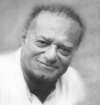
Prof. V. Benjamin was a charismatic Professor of Community Medicine of Christian Medical College, Vellore, who moved beyond surgery and clinical medicine to help found and evolve the Community Health and Development Department of CMC-Vellore – better known as CHAD. He was inspired by the 'Ashram movement' inspired by Gandhi and he then inspired many CMC-Vellore-Alumni to Community Medicine by his sincerity and commitment to the cause.
He joined SOCHARA later becoming its Vice President and President. He loved being in the community and in subsequent years was a consultant with CHC, supporting young professionals in community health action, campaigns and advocacy. He was always willing to travel to the most remote areas in spite of advancing age. He was deeply associated with the Drug Action Forum – Karnataka, the Medico Pastoral Association and the most inspiring feature of his life was that he ran a weekly clinic for patients affected by leprosy till the day before he passed away in 2005.
Prof. S. V. Rama Rao
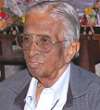
Prof. Rama Rao was one of the few PHC medical officers who became Professor of Community Medicine in several medical colleges and later Dean of a medical college. He was the Professor and Head of the Department by Community Medicine of St. Johns Medical College, Bangalore. This was where the initiators of CHC received their foundational experience of a decade of community based action, teaching and research. After retirement he joined SOCHARA and continued to inspire and give practical advice. He took forward his commitment to community health by running school health programmes and evolving safe water and sanitation programmes with urban poor communities, Prof. Rama Rao's wise counsel ensured that CHC balanced community health action with community health policy advocacy and engagement at all levels and in all initiatives.
Dr. Ravi Kapur
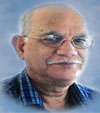
Dr. Ravi Kapur well known community psychiatrist and epidemiologist was a SOCHARA member. He was a consultant with CHC on Community Mental Health, qualitative research socio-epidemiology, yoga and the culture of health. Dr. Kapur brought and shared his rich insights in Community Mental Health, Indian psychology and sociology and his concerns about globalization and unplanned development and their effects on mental health. He involved CHC very closely in his work as the Deputy Director of the National Institute of Advanced Studies (NIAS) with two significant initiatives on Decentralization and Health Policy and introducing innovative learning opportunities and the social paradigm to leadership initiatives by NIAS for CEOs and teachers. He offered insightful organizational development evidence and advice that helped CHC and SOCHARA as it grew in its outreach.
Dr. Uma and Dr. K V Sridharan

Drs. Uma and K V Sridharan were a couple involved with the CHC–SOCHARA experiment as associates from the beginning. They were both regulars at all our community health forum meetings, offering their experience and enthusiastic involvement. Dr. Uma, a medical doctor, committed to working with the poor, was a creative community trainer evolving interactive, participatory methods of learning focused on neoliterate, indigenous and marginalized communities. She is remembered for her 'joyful learning' training manuals on health and other related topics.
Dr. Sridharan was a renowned social scientist well known for his experiments in teaching without walls and bringing formal social work education from institutional theory to learning from community praxis. His advice contributed to the interactive and field oriented framework of SOCHARA learning programmes. We remember and value the inspiration and solidarity they provided.
She was a close associate of CHC for long years. She passed away on 20th June 2006 after suffering from aplasmic anaemia.
Dr. Pankaj Mehta

Dr Pankaj Mehta was a public health consultant and faculty member with M S Ramaiah Medical College and later the Manipal Academy of Health Sciences after completing his post graduation in Preventive and Social Medicine from CMC, Vellore. From the early 1990's when the society was formed, he became an active member and associate in initiatives including the evaluation of the Jan Swasthya Rakshak Scheme of the Madhya Pradesh Government; research initiatives supporting the health task force secretariat in Karnataka and regular feedback on training initiatives. During the 1998 review he wrote “CHC has meant to me a refuge - a place to recharge - a place to visit, when spirits are down (but not out); to understand that we are not alone – that there are others who also are constantly questioning, trying to understand- fighting for rights for the voiceless – adding agendas if need be – but never - shying from the truth. It has also helped me to have faith in fellow human beings”. Later when he moved to UNICEF, first based in Kolkata and later in Kathmandu, Nepal, he continued to support SOCHARA actively through regular advice and prompt responses to communications. He fully supported the metamorphosis into a School of Public Health. SOCHARA records with great sorrow the sudden untimely demise in 2011 of Dr. Pankaj Mehta and his wife Dr. Chaya Mehta, in the unfortunate air crash in Nepal. We shall miss his enthusiasm, advice and wise counsel.
Dr. Paresh Kumar

Dr. Paresh Kumar was a sociologist from Mysore University who had a long term connection with the co-initiators of SOCHARA during the phase they were part of the Department of Community Medicine at St. Johns. Since the formation of SOCHARA, Paresh who had moved to Amul, Anand as a sociologist remained in close touch with SOCHARA till he joined as a team member in 2003. He was responsible for various new initiatives in SOCHARA including the Health Information Network (HIN) initiative with WHO-India and the Ministry of Health and the further evolution and grounding of JAAK during his term. In 2004 He returned to his teaching career in the Department of Sociology at Mysore University and continued as a SOCHARA member till he passed away in 2013. Paresh was deeply involved with theatre of all types and everything related to it and he is known for having added art, culture and theatre into everything he was involved in including health and development. Paresh also worked during his SOCHARA years to strengthen the discipline of medical sociology by introducing through a UGC scheme orientation of young sociology lecturers to health, medicine and development issues.
Dr. Ajay Khare

Dr. Ajay Khare and friends from Gandhi Medical College, Bhopal had set up clinics as medico's and interns for the Bhopal disaster victims in 1984. Hailing from Chhattarpur, Bundelkhand he had a deep understanding and concern for people, health and development. He joined the MP state government health service and also was part of the formation of the MP Vigyan Sabha (MP VS). He played a critical role as an insider in the health service. He was the Secretary of the MP Govt. Medical Officer's Association.
When we in Sochara thought of an MP initiative, the first person we contacted was Ajay. His immediate and sustained response was supportive and so positive. He was a valuable member of the Madhya Pradesh Centre for Public Health & Equity Advisory Committee. He was also a very popular resource person for all our team members and fellows in SOCHARA. His participation, support and leadership to the MP Jan Swasthya Abhiyan has helped it to take root.
Mr. Hanumanthappa H
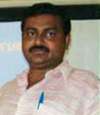
Mr. Hanumanthappa who hailed from Davangere, Karnataka was associated with the Karnataka chapter of the People’s Health Movement (PHM) and his focus of work was on issues related to Disability, Right to Information Act, HIV/AIDS, TB and NREGA.
He joined CHLP in 2010, learnt about Determinants of Health, Health as a Human Right and Disability and post fellowship he continued to work in Davangere to support people’s struggles for their rights including work with people with disability. He passed away in 2014.
Dr. Arun Guptha
_0.jpg)
Dr. Arun Guptha studied Medicine in Russia, Moscow. After few years of Graduation with the support and inspiration of Fr. Claude D’Souza he joined the Fellowship. During his association with CHLP he explored the Dalit issues, Manual Scavenging, Appropriate Technologies for Health, Hunger and Health, child sexual abuse and other Community challenges.
He did his field posting in Navasarjan in Ahmedabad, Gujarat. After completing his fellowship he was working as a community practitioner and passed away in a tragic road accident.
